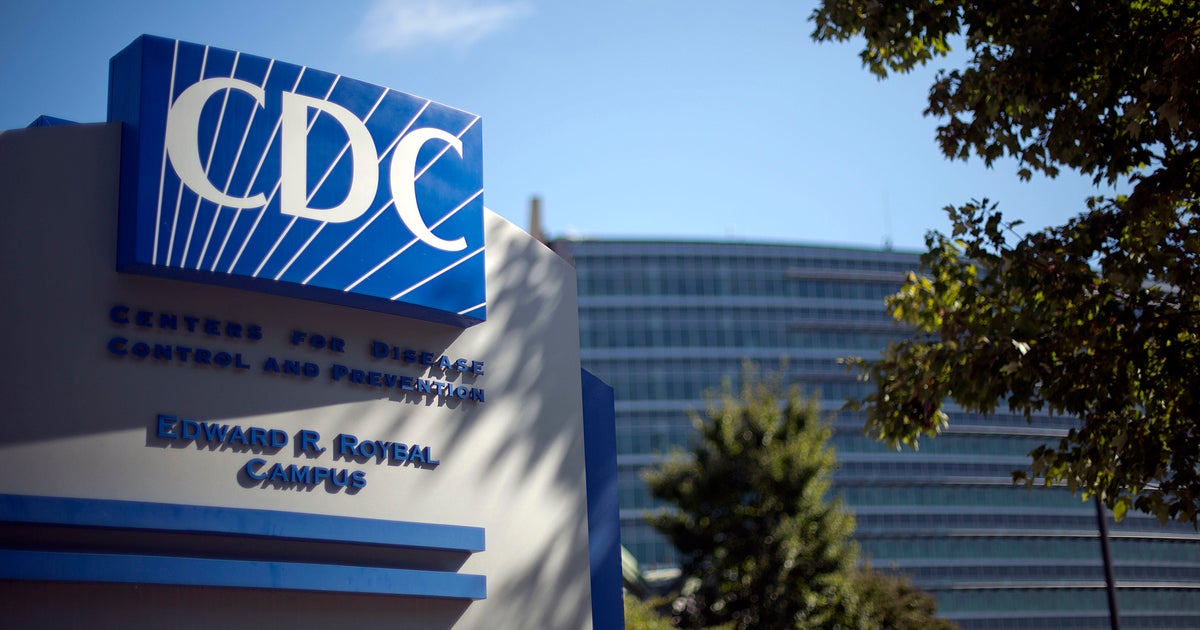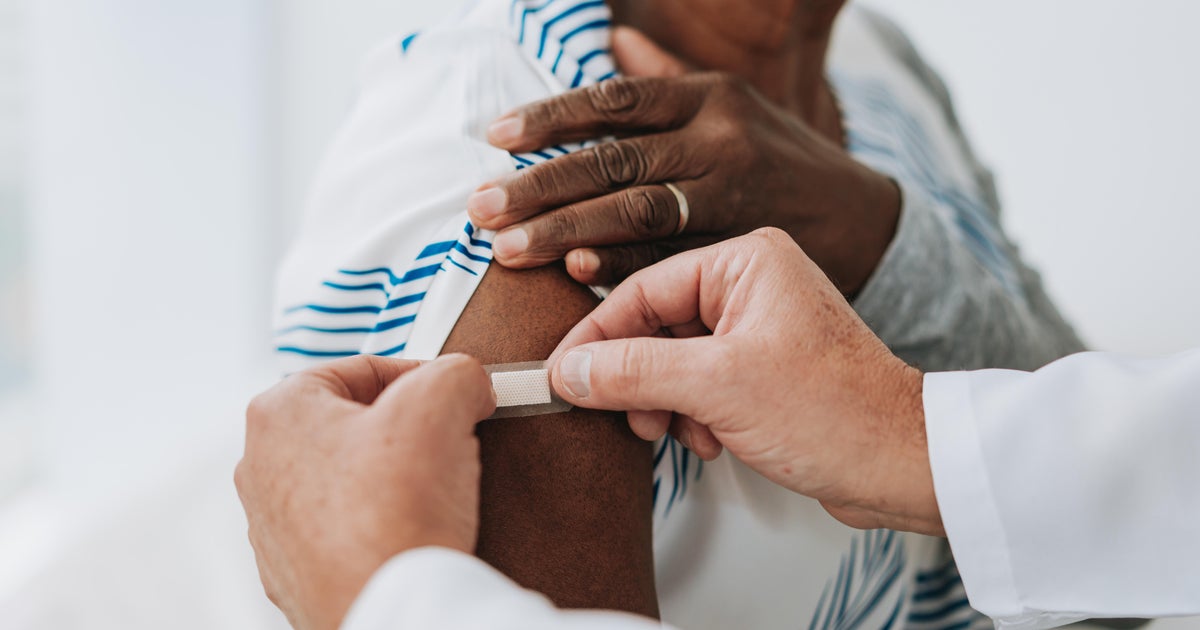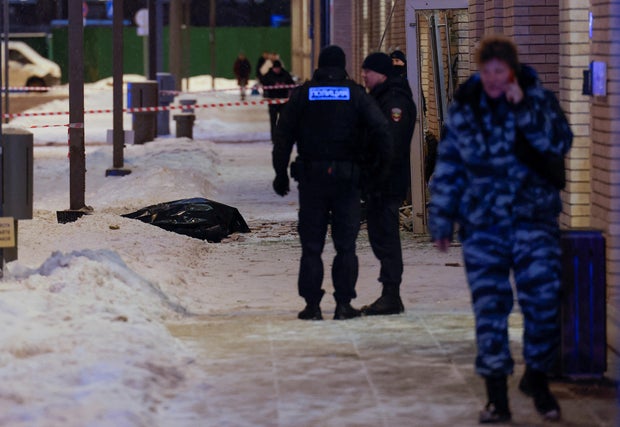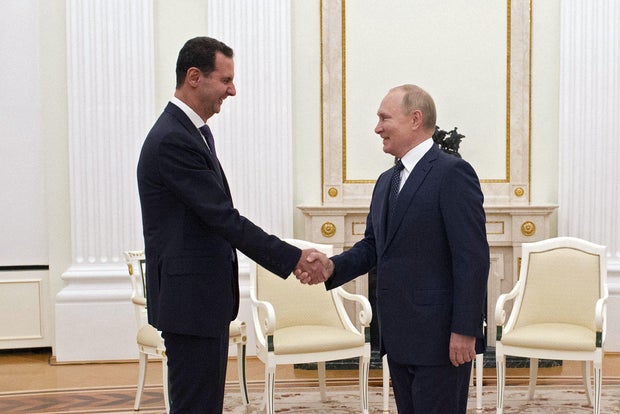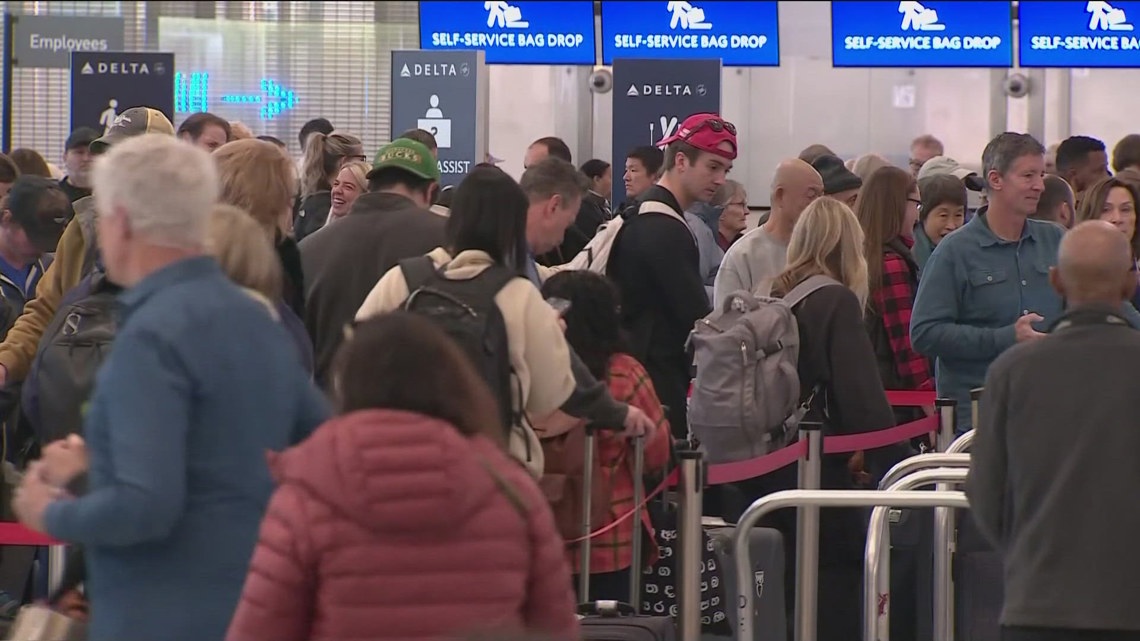CBS News
U.S. life expectancy rose in 2022 by more than a year, but remains below pre-pandemic levels

U.S. life expectancy rose last year — by more than a year — but still isn’t close to what it was before the COVID-19 pandemic.
The 2022 rise was mainly due to the waning pandemic, Centers for Disease Control and Prevention researchers said Wednesday. But even with the large increase, U.S. life expectancy is only 77 years, 6 months — about what it was two decades ago.
Life expectancy is an estimate of the average number of years a baby born in a given year might expect to live, assuming the death rates at that time hold constant. The snapshot statistic is considered one of the most important measures of the health of the U.S. population. The 2022 calculations released Wednesday are provisional, and could change a little as the math is finalized.
For decades, U.S. life expectancy rose slightly nearly every year. But about a decade ago, the trend flattened and even declined some years — a stall blamed largely on overdose deaths and suicides.
Then came the coronavirus, which has killed more than 1.1 million people in the U.S. since early 2020. The measure of American longevity plunged, dropping from 78 years, 10 months in 2019 to 77 years in 2020, and then to 76 years, 5 months in 2021.
“We basically have lost 20 years of gains,” said the CDC’s Elizabeth Arias.
A decline in COVID-19 deaths drove 2022’s improvement.
In 2021, COVID was the nation’s third leading cause of death (after heart disease and cancer). Last year, it fell to the fourth leading cause. With more than a month left in the current year, preliminary data suggests COVID-19 could end up being the ninth or 10th leading cause of death in 2023.
But the U.S. is battling other issues, including drug overdose deaths and suicides.
The number of U.S. suicides reached an all-time high last year, and the national suicide rate was the highest seen since 1941, according to a second CDC report released Wednesday.
Drug overdose deaths in the U.S. went up slightly last year after two big leaps at the beginning of the pandemic. And through the first six months of this year, the estimated overdose death toll continued to inch up.
U.S. life expectancy also continues to be lower than that of dozens of other countries. It also didn’t rebound as quickly as it did in other places, including France, Italy, Spain and Sweden.
Steven Woolf, a mortality researcher at Virginia Commonwealth University, said he expects the U.S. to eventually get back to the pre-pandemic life expectancy.
But “what I’m trying to say is: That is not a great place to be,” he said.
Some other highlights from the new report:
- Life expectancy increased for both men and women, and for every racial and ethnic group.
- The decline in COVID-19 deaths drove 84% of the increase in life expectancy. The next largest contributor was a decline in heart disease deaths, credited with about 4% of the increase. But experts note that heart disease deaths increased during COVID-19, and both factored into many pandemic-era deaths.
- Changes in life expectancy varied by race and ethnicity. Hispanic Americans and American Indians and Alaska Natives saw life expectancy rise more than two years in 2022. Black life expectancy rose more than 1 1/2 years. Asian American life expectancy rose one year and white life expectancy rose about 10 months.
But the changes are relative, because Hispanic Americans and Native Americans were hit harder at the beginning of COVID-19. Hispanic life expectancy dropped more than four years between 2019 and 2021, and Native American life expectancy fell more than six years.
“A lot of the large increases in life expectancy are coming from the groups that suffered the most from COVID,” said Mark Hayward, a University of Texas sociology professor who researches how different factors affect adult deaths. “They had more to rebound from.”
CBS News
Luigi Mangione’s extradition to New York expected

Watch CBS News
Be the first to know
Get browser notifications for breaking news, live events, and exclusive reporting.
CBS News
Johnson’s spending bill blasted as government shutdown deadline approaches
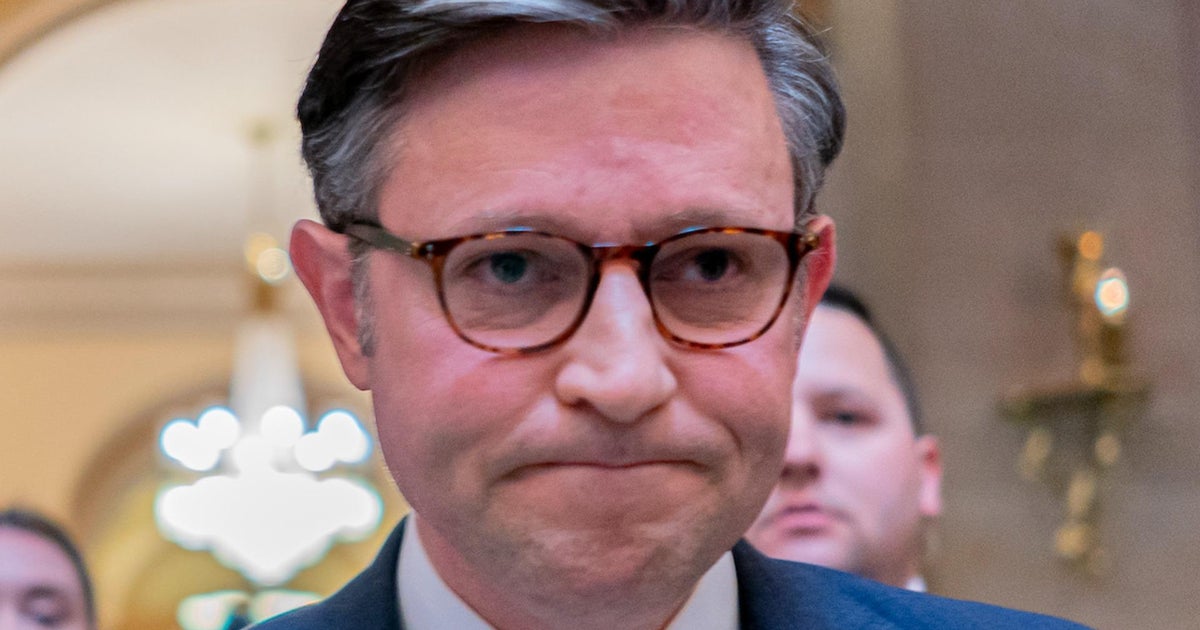
Watch CBS News
Be the first to know
Get browser notifications for breaking news, live events, and exclusive reporting.
CBS News
Putin laments “serious blunders” in top general’s killing, says he’ll meet Trump “any time” on Ukraine war
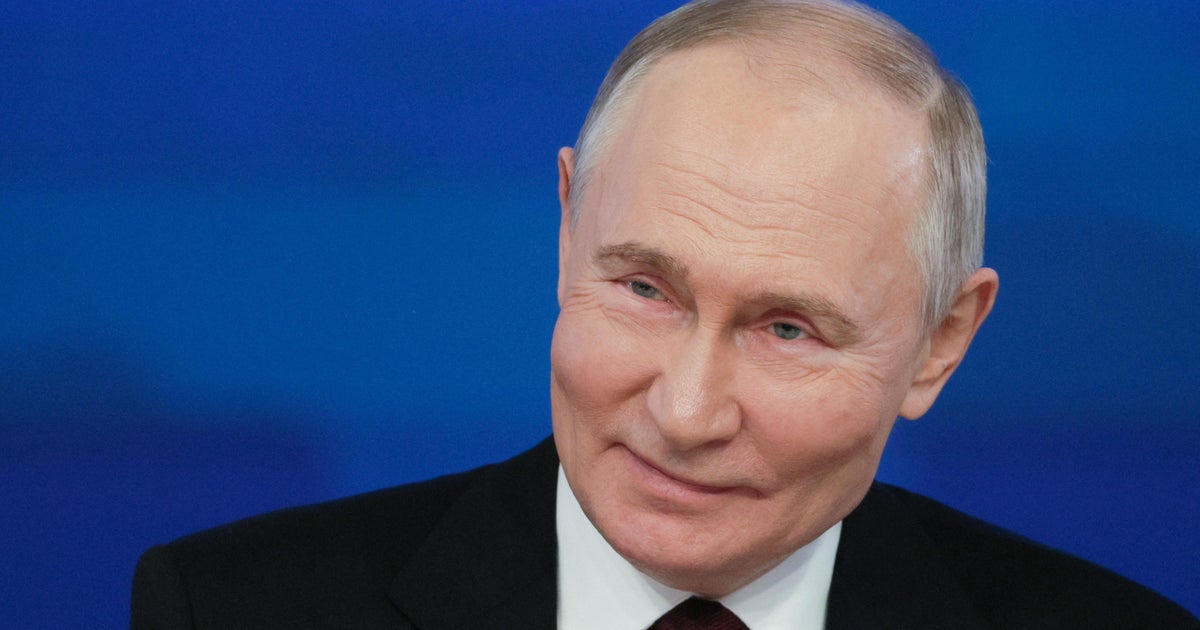
Moscow — Russian President Vladimir Putin on Thursday made a rare admission of failings by his powerful security agencies over the Ukraine-orchestrated killing of a senior general in Moscow. Lt. General Igor Kirillov, the head of the Russian military’s chemical and biological weapons unit, was killed by a bomb planted in a scooter in Moscow on Tuesday, the boldest assassination claimed by Kyiv since the start of the conflict.
“Our special services are missing these hits. They missed these hits. It means we need to improve this work. We must not allow such very serious blunders to happen,” Putin said at his end-of-year press conference, addressing a string of attacks inside Russia on high-profile Kremlin backers amid Russia’s war in Ukraine.
Ukraine has been linked to previous attacks in Russia, including the August 2022 car bombing of nationalist Darya Dugina and an explosion in a Saint Petersburg cafe in April 2023 that killed high-profile military correspondent Maxim Fomin, known as Vladlen Tatarsky.
Putin was addressing the killing of Kirillov for the first time, more than 48 hours after the blast in a residential part of the Russian capital. Questions have been asked in Moscow about the security protocols for such a high-ranking and public figure involved in the military offensive on Ukraine.
Maxim Shemetov/REUTERS
Kyiv claimed responsibility for the attack, saying explosives were packed into an electric scooter left by the door of a residential building.
When Kirillov and his assistant left the building, it detonated, killing them both.
Russia has detained an Uzbek citizen born in 1995, suspected of carrying out the attack, the Investigative Committee said Wednesday.
It claimed he said he had been “recruited by Ukrainian special forces.”
Putin on Thursday called the attack “terrorism”.
A source in Ukraine’s SBU security services called Kirillov a “legitimate target” and has accused him of being behind the mass use of banned chemical weapons on the frontline in eastern Ukraine.
Putin says he’ll meet Trump “any time” about Ukraine
Putin said Thursday he was ready for talks “any time” with U.S. President-elect Donald Trump, who has touted his ability to strike a Ukraine peace deal within hours of coming to office.
Trump, who will return to the White House in January, has stoked fears in Kyiv that he could force Ukraine to accept peace on terms favourable to Moscow.
Sputnik/Gavriil Grigorov/Pool via REUTERS
Holding his annual end-of-year press conference, the Kremlin leader said his troops held the upper hand across the battlefield, but was forced to admit he does not know when Russia will take back the western Kursk region where Ukrainian troops launched an incursion in August.
The traditional annual question and answer sessions, often lasting hours, are largely a televised show while also being a rare setting in which he is put on the spot and answers some uncomfortable questions.
Asked about Trump’s overtures regarding a possible peace deal, Putin said he would welcome a meeting with the incoming Republican.
“I don’t know when I’m going to see him. He isn’t saying anything about it. I haven’t talked to him in more than four years. I am ready for it, of course. Any time,” Putin said.
“If we ever have a meeting with President-elect Trump, I am sure we’ll have a lot to talk about,” he said, adding that Russia was ready for “negotiations and compromises.”
The Kremlin recently welcomed Trump’s sharp criticism of President Biden’s decision to allow Kyiv to use U.S.-supplied missiles to strike Russian territory — a major escalation in the nearly three-year conflict that Mr. Biden’s administration said was necessitated by Putin drafting in thousands of North Korean soldiers to bolster his own ground forces.
Russia’s troops have been advancing in eastern Ukraine for months, with Putin repeatedly touting their prowess on the battlefield.
“We are moving towards resolving the primary aims that we set at the start of the special military operation,” Putin said, using Russia’s term for the conflict. “Our guys are fighting heroically. The capabilities of the armed forces are growing.”
Moscow’s army in November advanced at its fastest pace in east Ukraine since the first month of its 2022 attack.
But asked by a woman from the Kursk region when residents will be able to return to their homes there, after thousands were evacuated from frontline areas amid the Ukrainian assault, Putin said he could not name a date.
“We will absolutely kick them out. Absolutely. It can’t be any other way. But the question of a specific date, I’m sorry, I cannot say right now,” he admitted.
Putin challenges West to shoot down powerful new Russian missile
Putin appeared to repeat his threat to strike Kyiv with Russia’s powerful new multiple-warhead ballistic missile, dubbed Oreshnik. Russia has touted the Oreshnik as a hypersonic weapon virtually impossible to intercept, but an official at the U.S. Defense Department told CBS News it was assessed to be a variant of Russia’s existing RS-26 rocket, an “experimental” intermediate-range ballistic missile (IRBM.
Asked Thursday by a military journalist if the weapon had any flaws, Putin suggested a “high-tech duel” between the West and Russia to test his claims that it is impervious to air defenses.
“Let them set some target to be hit, let’s say in Kyiv. They will concentrate there all their air defenses. And we will launch an Oreshnik strike there and see what happens,” Putin proposed.
Assad’s ouster in Syria no “defeat” for Russia, Putin says
In his first public comments since the fall of ex-Syrian President Bashar al-Assad, Putin rejected claims that his toppling was a “defeat” for Russia.
“You want to present what is happening in Syria as a defeat for Russia,” Putin said in response to a question from a journalist. “I assure you it is not… we have achieved our goals.”
Putin said he has not yet met Assad, who fled to Moscow as rebels closed in on Damascus, but plans to soon.
MIKHAIL KLIMENTYEV/SPUTNIK/AFP/Getty
Putin came to Assad’s rescue more than once over the course of the grueling civil war in Syria, and he stands to lose a significant military foothold in the volatile Middle East with his long-time ally now decisively out of power.
Putin says Russia’s economy “stable, despite external threats”
Putin was also pressed Thursday on the economic headwinds facing Russia — the fallout from a huge ramp up in military spending and deep labor shortages caused by the conflict.
He insisted that the situation was “stable, despite external threats,” citing low unemployment and industrial growth.
Asked about soaring inflation, Putin said that “inflation is a worrying signal,” and that price rises for foods such as butter and meat were “unpleasant.”
He acknowledged that Western sanctions were also a factor — “while they do not have key significance” — and criticized his country’s central bank, saying it should have taken measures beyond raising rates to lower inflation.





